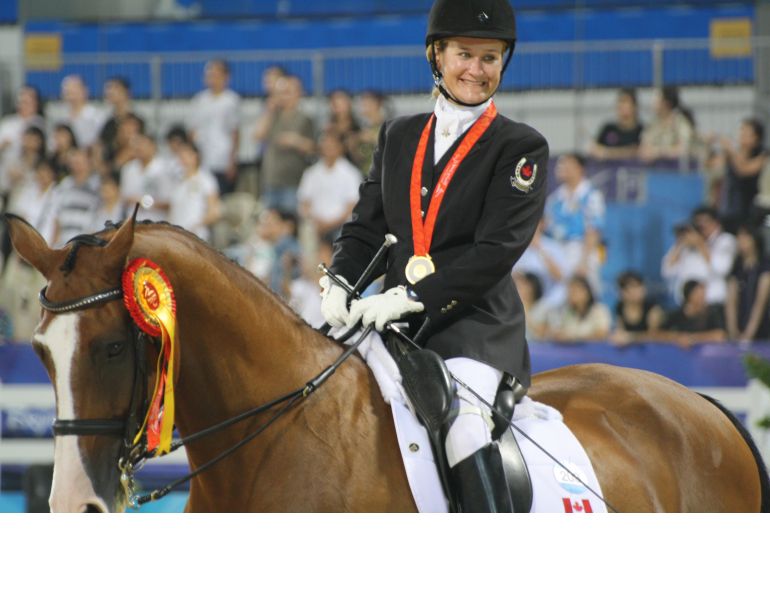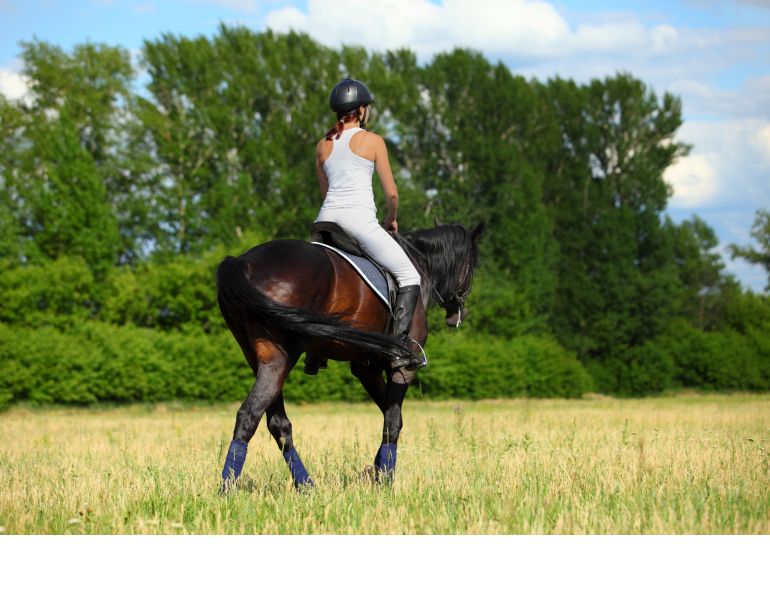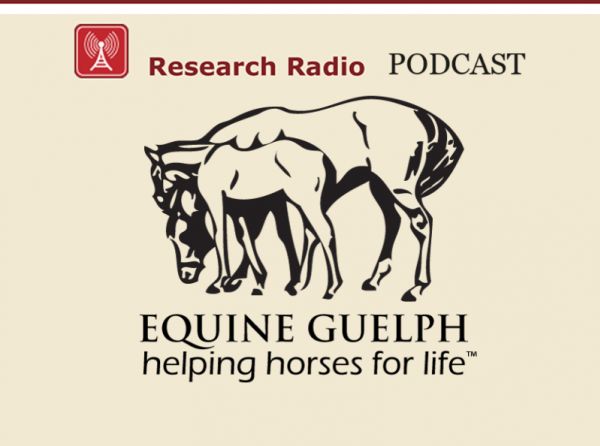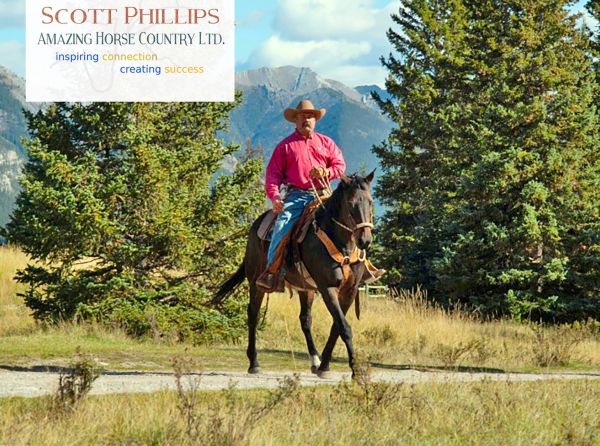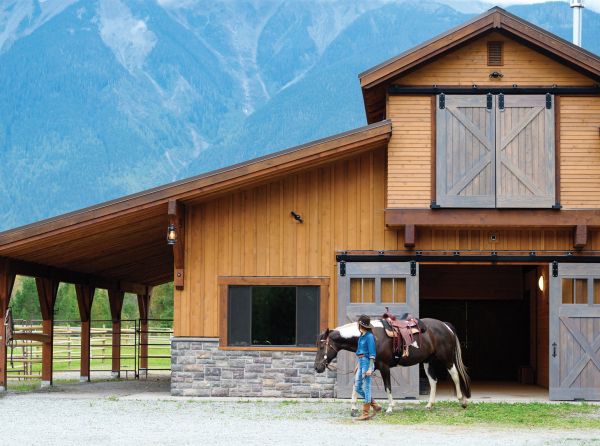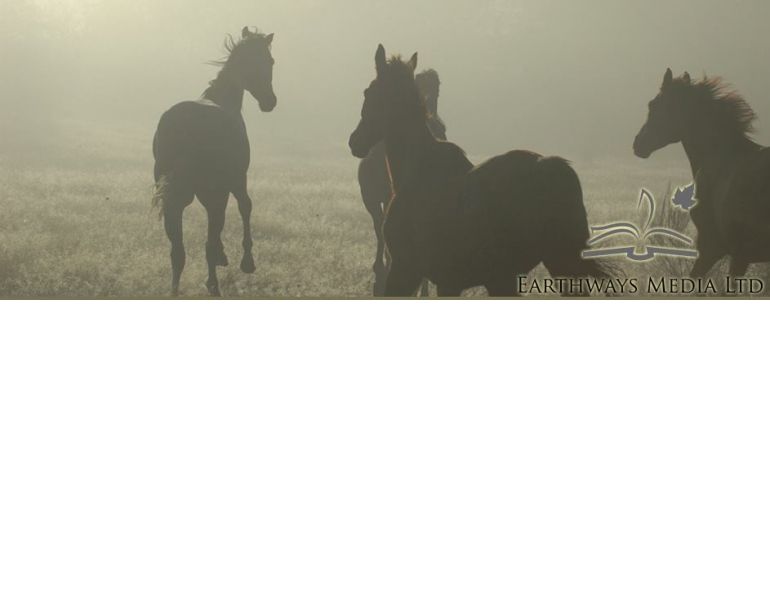By Heather Sansom
At this time of the year, I am often asked questions such as what to eat on or before a show day, how much water is too much, and all too often, whether coffee counts. Whether you’re showing or just riding long hours in the heat, hydration and nutrition can be a challenge.
Water and food consumption will have a significant effect on your performance, stamina, and risk of injury. Most of us think about our horses before we think of ourselves, not realizing that our lack of attention to ourselves can seriously affect our horses’ performance. Riders who brought feed, hay, supplements, and water to the show for their equine athletes can often be seen munching hot dogs and drinking cola - if they take time to refuel at all.
Hydration
Approximately 60 percent of your body weight is water. Your body uses water to digest food, facilitate chemical reactions and respiration, carry oxygen throughout the blood, regulate body temperature, lubricate joints, and remove waste. Hot weather, days spent riding out, and long competition days can all cause dehydration, a formidable problem. Show days in particular can be grueling, with long distances to travel between food amenities and ringside, making it easy to forget to drink or eat enough to sustain energy levels.
Symptoms of dehydration include fatigue, lack of coordination or ability to concentrate, constipation, physical weakness, headaches, cramps and irritability. Even if you do not notice these symptoms, your horse will definitely be aware. Fatiguing muscles and lack of concentration will cause you to lose your self-carriage in the saddle, make costly errors in judgement, and throw your horse’s balance off. If you compete in eventing, competitive trail or endurance, just imagine the impact that your lack of balance and stamina is having on your horse’s soundness over time.

Grooms aren’t exempt! Emily Dexter, groom and barn manager for Canadian Olympian Gina Smith takes a moment to rehydrate. Photo: Courtesy of Equifitt.com
Dehydration isn’t just uncomfortable, it’s unsafe. This is particularly true if you compete in higher risk events such as eventing or jumping. Equestrian sports are an endurance event for your body because of the physical demands often required from the early morning on until late afternoon, and usually in the hot summer sun.
In addition to water, exercise depletes your carbohydrate and electrolyte levels, namely sodium and potassium. You can lose several pounds in water weight if you are training in hot weather, and riders who are doing endurance sports or are working hard in the saddle for three hours or more have similar requirements to long-distance runners. Yet, how many riders do you see wolfing down high fat, low fibre foods and diuretic drinks that contribute directly to dehydration and muscle fatigue?
Since dehydration and electrolyte loss are cumulative, it’s important to plan in advance. A good rule of thumb to stay hydrated is to drink one to two cups of liquid in the hour before you train or compete. Have a drink as soon as you wake up and another one prior to competition.
The best practice for sports conditioning is to drink one half to a full cup of water every 15 minutes. This is not always feasible when working with horses, but you can compensate by drinking liquids every half hour to an hour. Having a couple of sips to rinse your mouth just after your warmup and just before you go into the ring is a good idea. It will help perk you up mentally.
Drinking after your ride will help to bring your hydration back up to pre-training levels. Another rule of thumb in sports conditioning is to drink two glasses of water per pound of weight lost during your training session. Paying attention to water loss in endurance disciplines is particularly important, but for most riders having some water after your ride and again during the following hours will be adequate. On a show day, this would mean starting your day with a glass or two of fluid such as juice or water prior to arriving at the show grounds, continually drinking throughout the day, and making certain to replenish water lost at the end of the day.
Drink before you feel you are thirsty. Thirst indicates that you are already depleted.
Coffee is a diuretic, which means it has a dehydrating effect. If you drink diuretics such as coffee, alcohol or cola, you will need to drink two glasses of water per cup of diuretic. Coffee is not a good way to start a show day. The negative diuretic effect will outweigh the positive value of the slight caffeine lift. If you get competition jitters, coffee can also aggravate them. Tea, and green tea in particular, may be better choices.
Electrolytes
Your first priority is to replace fluids. Replacing electrolytes (mainly sodium and potassium) is easier. You can use sport drinks, but you don’t have to. Fruit juices and fruits will not only provide you with all the potassium you need, but also provide vitamins and even fibre which will help your digestive system. One litre of orange juice contains three times the potassium a long distance runner would need to replenish.

Canadian Young Riders (dressage) Britt Fraser, Annie Desranleau, Jade Deter, Natalie Maskell, and Jessie Rhinelander from Oxford Ridge Stables, Oxford Mills, ON taking a water and snack break at the Ottawa Spring Classic. Photo: Courtesy of Equifitt.com
It also replaces carbohydrates needed to fuel muscles. In most cases fruit juices will be adequate. Squeezing lemon or lime into your drinking water is another great option for hydration, but fruit juice will give you added energy through the day when it is not as convenient to actually eat.
It is possible to overhydrate, diluting the sodium levels in your body. If you know you are drinking lots of water, and you are experiencing headaches or muscle cramping, you may be overhydrating. Stop drinking if you feel water sloshing in your stomach.
Eating salty foods in the days prior to a competition day can help build up sodium in your body. Eating salty snacks throughout the competition day can also help maintain sodium levels, particularly when you will be exercising or competing over a period longer than four hours. You do not need to resort to salt tablets unless your diet has been low in salt in general, or particularly during the time leading up to competition.
Nutrition
You do not want your blood sugar levels to drop or spike throughout the day. Eating high fibre foods in small amounts such as whole grain bread or fruits will help keep your stomach steady and minimize stomach jitters, while keeping you regular and keeping your blood sugar levels constant. It’s very difficult to concentrate or perform properly when your blood sugar is on a roller coaster, or you have eaten too much at one sitting and slowed your whole metabolism down. Eating light and often will keep your blood sugar up while avoiding lethargy from an overfull stomach. Your muscles, liver, and brain are fuelled by glycogen, a polysaccharide produced from glucose and obtained largely from carbohydrates. Your muscles can run on fuel consumed in the preceding couple of hours, but your brain will show fatigue much sooner. Eating a very light snack in the half hour before your ride will help keep your mind sharp. If you get competition jitters, frequent and small portions will help keep your stomach from getting too acidic from being empty too long, or queasy from too much/the wrong mix.

Nutrition and hydration have a direct effect on the rider’s performance, stamina, and risk of injury. Photo: Robin Duncan Photography
Starting your day with a high energy breakfast that is low in fat and high in fibre will give you fuel for several hours and a good start, without increasing stomach acidity or creating other digestive complaints.
I use oatmeal because it’s easy on the stomach, very high in fibre and energy, and provides glucose available to muscles for hours. It’s a great idea to pack a show-day snack pack that will encourage you to eat and drink regularly throughout the day to keep your blood sugar and energy levels up. Use whole grains foods with high fibre (such as brown bread or oatmeal bars.) These provide slow-release energy and are easier on the stomach than white flour based foods. Experiment ahead of time with foods to find out which ones settle your stomach and make you feel full and satisfied, and which ones set you off. You don’t want to wait until the day of the show to find out!
Hunger on a show day will also make you jittery, if not irritable, and your horse will pick up on this. Here is what I pack in a show-day snack pack: nuts, dried fruits such as raisins, multigrain bread, granola bars, cheese slices, yogurt, hard-boiled eggs, cucumber, small carrots, V8® juice, fruit juice, water with limes in it, grapes, bananas and other fresh fruits.
Too many fruits will run through you too quickly and not provide sustained energy. Dried fruits provide more sustained energy, while keeping it light. Eggs and cheese provide protein, and cheese has an added slightly constipating effect which will help if you tend to get ringside jitters and do not want to be running to the porta-potty.
You may also want to carb-load like a runner the night before with a pasta meal. If you do so, choose whole grain pasta because it will be easier on your digestive system. Then eat a wholesome but light breakfast. Eating fried eggs, sugary cereals, coffee or eating nothing at all are all approaches which will reduce your ability to perform well.
To read more by Heather Sansom on this site, click here.










